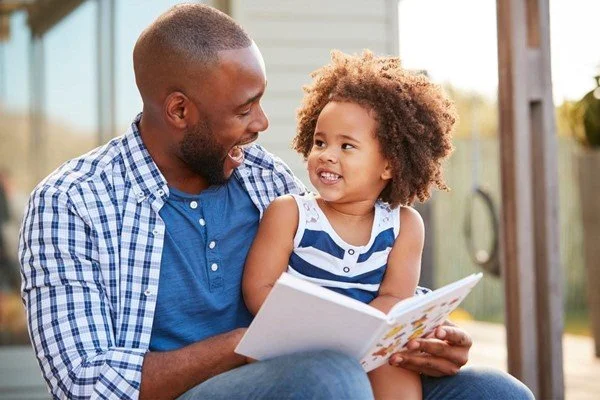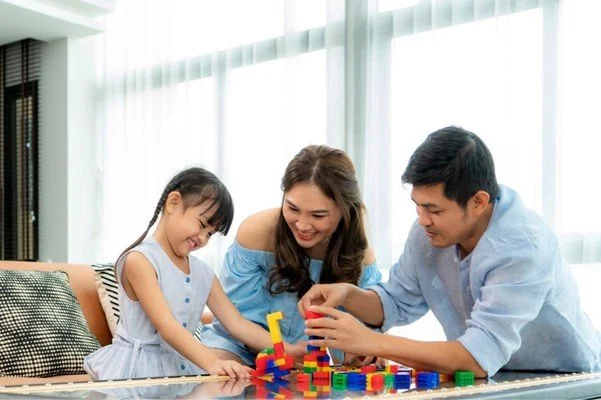The Positive Psychology Approach to Raising Your Kids - What It Has to Offer and How to Employ It
Positive psychology can be a useful tool for overcoming various challenges. Here's how your kids could benefit from this approach in different life situations.
The holiday season is a great opportunity to bond and enjoy quality time with your kids. However, the circumstances are different with the upcoming holidays compared to those of recent years.
It's not unusual for stress to build up during holidays. But in light of the ongoing pandemic, that stress could be elevated and threaten to overshadow the joy of family time. Luckily, it’s possible to overcome it.
Positive psychology can be a particularly useful approach when it comes to raising your kids, and it may also alleviate both every day and season-specific stress. And this approach has several other benefits for parents.
In this article, you'll learn about the benefits of the positive psychology approach and find out how you can integrate it into your family.
The Benefits of the Positive Psychology Approach
The ongoing pandemic has undoubtedly affected families, as well as workplaces and schools. It has served as an example of the disruption that crisis can introduce into everyday life and the negative outcomes resulting from it.
From a positive psychology point of view, peaks and valleys are common in life. Crisis can happen at any point due to various causes. But the same viewpoint acknowledges that, besides the deficit, negative situations may also promote growth.
Additionally, a positive approach can prove exceptionally useful in challenging times.
Numerous studies show the effects of positive approaches. Character strengths have been linked to lower PTSD levels in children who live in areas affected by war. Meanwhile, chronic illness patients have shown a greater level of pain management and wellbeing with the help of gratitude.
Similar findings exist when it comes to teachers working with trauma-affected students, positive approaches also benefit company leadership and employee morale, and taking a strength-based approach has been shown to lead to positive outcomes at a community and collective level.
The positive psychology approach presents a fruitful opportunity for growth and development, especially when it comes to raising children. And, as a method of reinforcing and building key personality traits, this approach could be particularly important in times of crisis.
Integrating the positive psychology approach into your family can provide fundamental support for the psychological development of your kids.
The following are five tips on introducing positive psychology into your family and integrating this approach to a positive effect.
Five Tips for Integrating Positive Psychology Into Your Family
Positive psychology can potentially impact all family members, from children and adolescents to adults, in terms of growth and wellbeing. In fact, family wellbeing is at the foundation of positive psychology.
However, children can be most affected by family interactions and experiences.
This is why it's crucial to ensure aspects of positive psychology are present in the relationship between kids and their parents.
Tip #1. Focus on High-Quality Interactions With Your Children
Kids can benefit greatly from positive interactions with their parents. These interactions can include doing structured and educational activities such as arts, crafts, games, reading, sports and so on. Time spent in these activities is linked with improvements in a child’s social competence and self-esteem.
Even when these interactions become overly frequent due to enforcement, as has been the case with lockdowns during COVID-19, the potential conflicts resulting from such circumstances might be solvable through positive psychology.
There's evidence to suggest that the relationship between parents and children doesn't necessarily have to become damaged because of conflicts that may arise when forced to spend time together. During times of crisis, maintaining a warm and affectionate connection through the time of conflict with your kids can be beneficial for the whole family. This approach helps build trust through moments of conflict and strain.
Tip #2. Savour Positive Emotional Experiences Together
This technique can be a new element that you can introduce into your family unit if it isn't present already. It’s because sharing positive emotional experiences can help in promoting growth and family wellbeing.
These experiences can range from laughing at a good joke together, doing activities, having a family movie night or going on a walk around the block. We don’t just benefit when we do these activities - we get benefits when we reminisce and savour them afterwards.
Hence, the key aspect here isn't only in having the experience. It's important to reflect on it and have a family conversation about what feelings the kids had during the experience.
Tip #3. Practice Strength-Based Parenting
Talking about the strengths of each family member can reinforce in your kids the internal tools they have for overcoming a crisis. Conversations about strengths may be more effective in that regard if they also cover how particular traits can be helpful in challenging times. For example, maybe you have noticed how your child uses his/her humour, kindness or creativity to cope. Highlighting these strengths will help your child learn what to use the next time they face adversity.
Through these family talks, your kids could learn the value of both their strengths and that of other family members. Furthermore, they may grow stronger in the face of adversity and develop confidence in their potential.
Tip #4. Support Your Children During Periods of Crisis
One of the essential aspects of the positive psychology approach is promoting compassion. You can do it by providing your kids with support through their struggles. A compassionate response involves acknowledging distress, being mindful that it is human to struggle and showing your kids how to be kind to themselves in that moment.
Whether the challenges come from everyday life or a disruptive influence of a wider scope, your compassion will play a crucial role.
Tip #5. Spend Time in Constructive Activities
Finally, you can boost your family’s wellbeing, especially your kids’, through different activities that can reinforce the positive psychology approach.
These activities may include spending time in nature, engaging in culture and arts as a family, keeping a gratitude jar, or creating a family music playlist, to name a few.
Introduce the Positive Psychology Approach Into Your Family Life
Positive practices and techniques described in this article are beneficial for family wellbeing in several ways.
During challenging periods, they may help your kids overcome many hardships and struggles by focusing on their positive emotional experiences, building up their strengths and learning how to be compassionate
And if these practices become permanent, they could introduce favourable changes to your family dynamic for the longer term and, thus, become a significant driving force for the future growth of your children.
P.S. Whenever you're ready, you can join my Strength Switch - Online Positive Family Program- which has a whole bunch of the activities I’ve outlined above.

